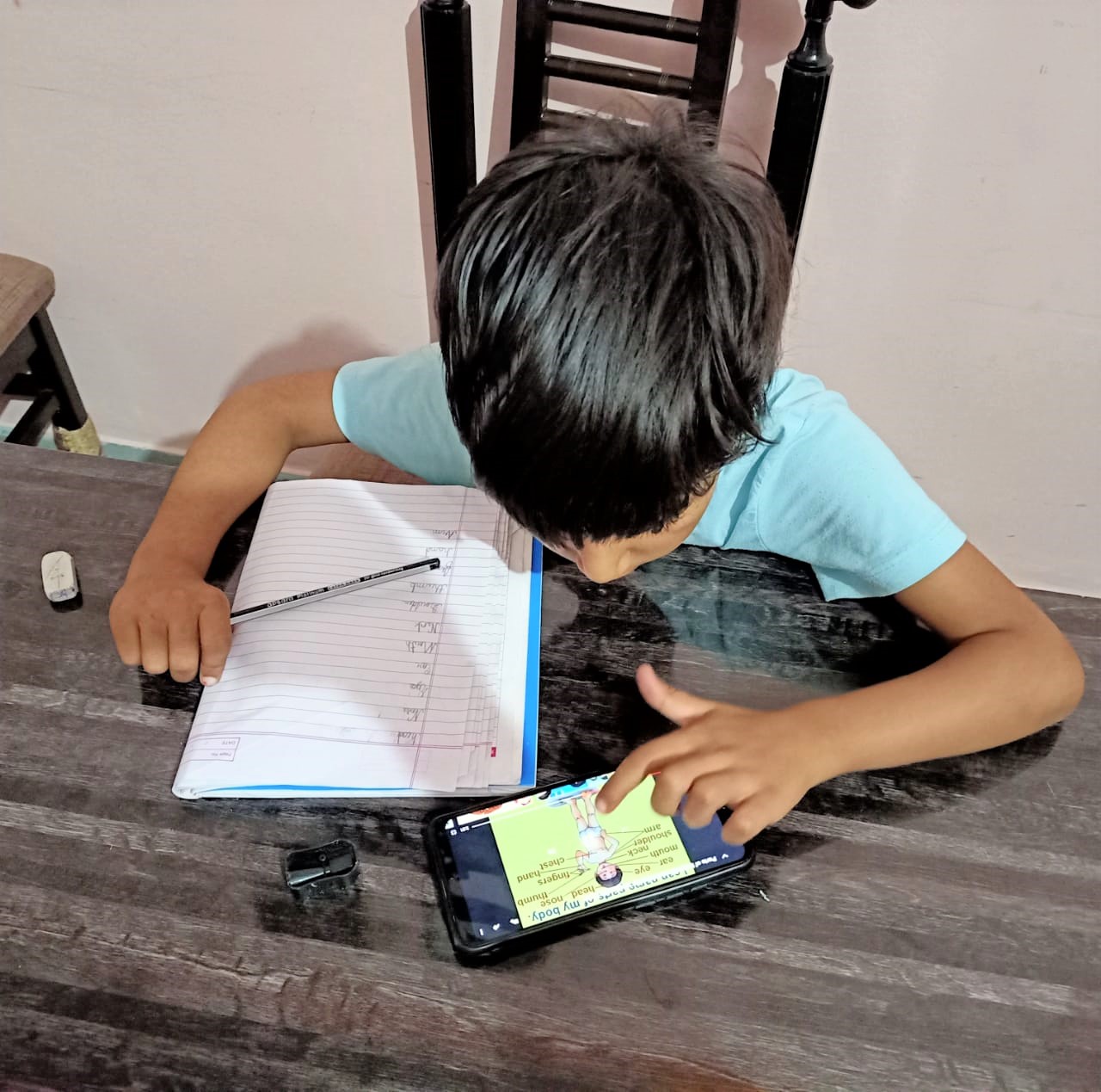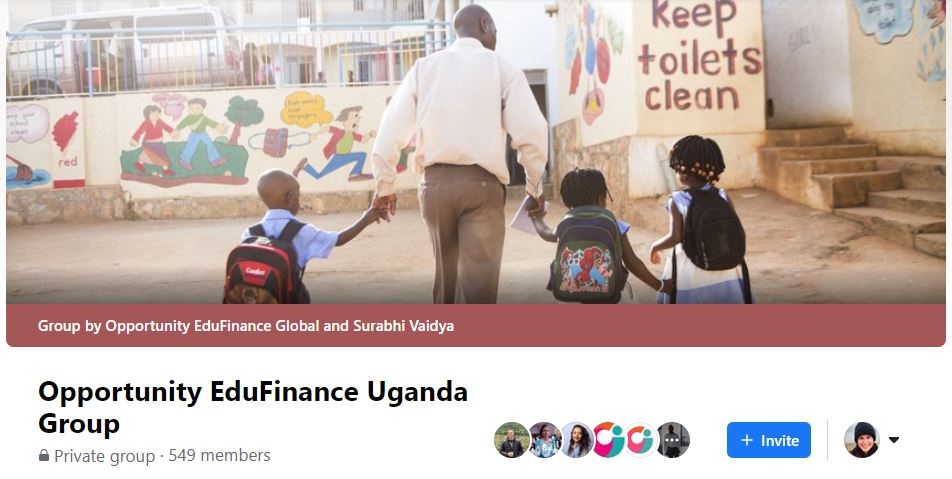Pathways to School Reopening: Navigating the Unknown
In our March blog, we reported on Opportunity EduFinance’s immediate response to the global pandemic, outlining the rapid launch of the EduFinance COVID-19 Toolkit with resources to support school leaders and financial institutions. As countries begin to release plans for school reopening, we caught up with the EduQuality team to find out how schools have been utilizing the toolkit resources, and learn more about the newest ‘Pathways to Reopening’ resources the team is producing to strategically guide schools as they plan to reopen.
Unchanging priorities in a rapidly changing environment
Renée McAlpin, EduQuality Manager
The second phase of our work focuses on school reopening. Since the onset of global school closures, our priority has been to make sure that schools reopen and are not faced with permanent closures. That is a real risk, given that we work with private operators who are not funded by the government. We must also focus on ensuring children return to school. We know from past crises that the longer children are out of school, the less likely they are able to return.-scr.jpg)
It is not easy with this level of uncertainty. Our field teams have been extremely adaptable, shifting to meet what is happening in the field week by week. We keep planning 2-4 weeks in advance and then shifting as things change to make sure we can support the schools based on the realities of the moment.
A major focus of our work has been on how schools are engaging the wider community to reopen successfully. We are using many of the publicly available resources to develop our new Pathways to Reopening guide, which includes five key areas school leaders will need to consider when reopening. We are focusing on a different thematic area every two weeks through recorded podcasts and other supplementary content which is delivered by our local Education Specialists and via multiple digital channels.
We know from past crises that the longer children are out of school, the less likely they are able to return.
While it is still unclear when schools will officially reopen in many countries, and the type of guidelines and restrictions that they must align, we do know that safety and health precautions will have a significant impact on the amount of time allotted for learning after significant learning loss incurred during school closures. We begin preparing with this in mind as we wait for more guidance from central governments. Schools must start planning now and be aware that we will likely not return to traditional operations for years to come.
Why Facebook Lite Groups were our best (but not perfect) option to engage the most school leaders
Tim Maple-Foster, EduQuality Product Development Associate
We chose Facebook as one of our content sharing platforms for the Covid-19 Toolkit resources, because it allows us to mimic the cluster group model, enabling school leaders to collaborate, share resources and discuss challenges together. One Facebook group was established for each country of our EduQuality program, which is the first time all schools have had the chance to interact together. For example, in Uganda 549 schools have joined the Uganda Facebook group, whereas schools were previously only interacting with their 5-10 school cluster members.
While not providing 100% coverage, we know Facebook is the most widely used social media platform in the places we operate. School leaders can also use Facebook Lite, which requires very minimal data and works on a 2G network. For others we still use WhatsApp, SMS, and direct phone calls to reach them, which we are doing. But Facebook gives great analytics and the widest access to the most school leaders, and our own team of local Education Specialists.
Facilitating remote learning is a major challenge for most schools. We have created some remote learning content and advice for parents on how to do learning from home. Through the Facebook groups, we are encouraging schools to share their own content and remote learning strategies with one another, and continue to use their teachers where possible.
After receiving feedback from our Education Specialists that there was a need for counselling support, we developed short counselling videos and posts for Facebook that were received well. We also started using Facebook Live events to feature Education Specialists and school leaders to present on specific topics. For example, Pax Junior School in Uganda recently presented on ‘Managing Finances during a Crisis.’
Creating a clear ‘pathway’ to successful school reopening
Surabhi Vaidya, Project Management Associate
Once school closures were announced in March, we quickly started developing content to help school leaders navigate the immediate situation, as Renée and Tim also explained. We knew that school fee collection would take a massive hit, but that schools would still have to pay staff wages, fixed costs, and loans. To offer guidance, we developed materials focused on cash management to help school leaders consider options to reduce costs and identify alternative sources of revenue.
Now, as part of what we are calling ‘Phase 2,’ our team has looked at five domains that schools will need to consider when planning for reopening, as Renée already mentioned: business planning and financial management, a clean and safe learning environment, teaching and learning, staff engagement, and parent engagement. These are the areas that specifically stood out in Facebook discussions and surveys of school leaders in terms of their top concerns.
Each section of this new Pathways to Reopening guide has a checklist with key points schools should be planning to do before school reopening, during reopening, and after schools reopen. The guide also includes a simple planning template so leaders can identify action points that they want to tackle and to whom they are delegating responsibility. For example, a school may need to collect up-to-date parent contact information, which could be delegated to the headteacher to collect. All the actions we outlined are achievable with little to no required spending.
We are currently sending the guides to schools in ‘bitesize’ pieces – one section every two weeks, so leaders have time to read, process and plan without getting overwhelmed. They can also listen to a podcast by their local Education Specialist on the specific section and are then encouraged to complete their own checklist for that section.
Making 'Pathways to Reopening' relevant and accessible in India
Yasmeen Hossain, Education Specialist, India

The lockdown in India has been one of the most stringent in the world. There is a digital divide, especially in our school communities in Haryana who generally do not have internet or phones, making it difficult for families to engage in distance learning. This makes sharing resources and guidance even more difficult for our partner schools. In Rajasthan, they do have slightly more access, but it is still plagued with challenges.
Our India version of thePathways to Reopening guide will be launching next week. I am currently adding stories to make it more engaging and relevant, connecting to the context in India through sharing success stories from Indian schools. The school leaders are reading the content shared so far and finding it useful.
Finding ‘new norms’ for operating and engaging schools
Robinah Zawedde, Head Education Specialist, Africa
We’ve had to create new operating procedures during this period. When we receive draft content from Tim and Surabhi, first we need to make sure we understand it and can support it in the field. To do this, every week we have a content debrief meeting to provide support to the teams on the ground. We refocused our traditional team meetings during lockdown to specifically discuss how to continue engaging the schools and learners. We look at the channels that we should use to make sure that everyone has received the newest content, and make sure every school leader is engaged. This was a challenge, as we had not used Facebook before in the EduQuality program. We first collected Facebook accounts to help school leaders connect to our new Facebook groups, and also made sure they received the same content through SMS.
Previously we didn’t engage so much with the teachers directly. Now, sometimes we fail to get school leaders to use Facebook, but we start working with other teachers in the school to connect and share. Unfortunately, some teachers have lost their jobs. If they have stopped working, they can’t support learners. Many other school leaders have left to do farming. So bringing the school back into their mind has been a challenge.
At the time when schools closed, many had lesson plans and schemes of work but they didn’t have ways of getting these to the learners. We wanted to focus on working to support parents by offering schools information to share with parents via WhatsApp. For example, in some schools, teachers just sent home pictures of the blackboard, which we know may not be the best way to support the learners., which we know may not be the best way to support the learners. We developed smart guidelines on how to support learners with more engaging activities, and so far our guides have been really appreciated by the parents and the schools.
Facebook Live sessions have been very important to school leaders, as they became more interested when we asked them to present. We try to develop a family environment where they can create and share and ask questions. These presentations have been very welcomed by the school leaders.
"The facebook live sessions have given us an opportunity to continue learning together as people, through some challenges." - Jacob Walyabagha, Bukenya Gayanza Nursery School
The Pathways to Reopening guides have been received well. Many school leaders are pointing out that they had been so confused because they had received so many different directives from the government. When we gave them the plan, they said this has helped them refocus on reopening. They have realised it’s actually really useful to have the checklist for reopening.
Opportunity EduFinance will continue to demonstrate our commitment to contribute to the broader education sector working towards similar goals by sharing our learnings, challenges and practical operational shifts as we walk alongside educators during this period. We know that the work of recovery and mitigating massive learning loss will be ongoing long after schools officially reopen. In line with this commitment to collaborate, we have recently joined as members of both the UNESCO Global Education Coalition and Rising on Air, and contine to post new content in our COVID-19 Toolkit.
If you would like to further discuss any of our learnings or resources, please contact us as edufinance@opportunity.org.
